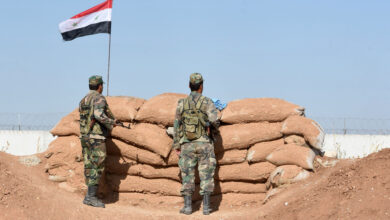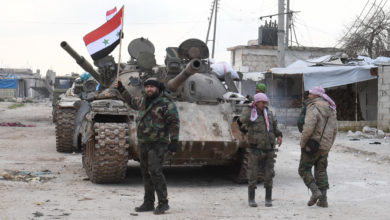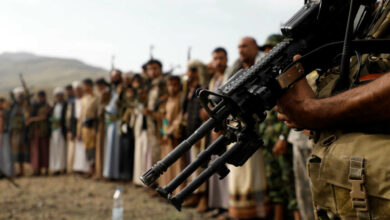
Despite the pandemic, jihadist groups remain active and continue to undertake heinous acts of violence. Various African countries, as well as Iraq, Austria, and Afghanistan, have recently witnessed attacks, including massacres at a maternity hospital, funeral, and prison.
Militant jihadists are also increasing their online outreach, particularly among the young who are spending more time online because of lockdowns.
Yet, many people, especially in the West, struggle to understand jihadist violence and its motivations, particularly at a time of worldwide crisis. Why do jihadists continue to target public places, massacre innocent civilians, conquer territory, enslave women and children, and attract adherents who will do egregious violence in the name of jihad?
While there are many factors involved, the key to understanding the brutality and resilience of militant jihadism is its victim identity.
Fighting for the Victimized
A recurring justification for militant jihadists is that they claim to be fighting for the victimized. Dr. Abdel Aziz Rantisi, a founder of Hamas, called the understanding that the organization’s militants are aggressors the “number one misunderstanding” about the group. “We are not: we are the victims,” he said in 2000.
Jihadist violence involves the deployment of violence in defense of the perceived Muslim victims of modernity. In defending these select victims, militant jihadists claim a sacred purpose for their violence, including killing innocents. This purpose is supposedly sanctioned by Allah to defeat the enemy infidels and counter-act anti-Islamic forces, especially secular modernity.
For example, Osama bin Laden’s November 2002 “Letter to America” lists numerous grievances against the West that supposedly caused the unjust victimization of Muslims. The 9/11 attacks were claimed to be a just and necessary response to this victimization. “The truth is that the whole Muslim world is the victim of international terrorism, engineered by America at the United Nations,” the Al-Qaeda founder had said four years earlier.

French-Iranian sociologist Farhad Khosrokhavar argues that the sense of “absolute victimization” is intrinsic to the jihadist reaction to modernity. This sense is directed against alienating political systems in Muslim-majority countries and the “corrupting” and “decadent” forces of Western modernity. It is accompanied by the feeling of “despondency and deep injustice within the Muslim diaspora.”
This sense of injustice is amplified by conspiracy theories, including about COVID-19 as an agent of Western oppression. For example, Ayatollah Ali Khamenei claimed the virus was made and targeted by the US at Iranians.
In the age of mass media and the internet, it is easy to encourage a victim identity and a distorted and violent form of solidarity over against the evil enemy. It also easy to spread poisonous messages, and as British Orthodox Rabbi Jonathan Sacks argues, demonize whole populations: “Jihadist and suicide-bombers are recruited by non-stop streams of images of the humiliation of Muslims at the hands of others who then become the Greater or Lesser Satan and can be murdered without qualms since you see them as persecutors of your people.”
‘Righteous Violence’
In finding solidarity in a shared sense of victimhood, jihadist ideology then channels this solidarity into an outlet for meaningful activity and camaraderie through “righteous violence,” or what Rabbi Sacks calls “altruistic evil.”
French political analyst Laurent Murawiec states that the jihadist struggle is “always the deadly, bloody struggle of the victim against a world wholly dedicated to persecuting the victim, who ‘must’ in turn strike ‘back.’” Thus, the more brutal the violence, the better for bringing true justice and peace.
This violence extends to any civilian who is not allied with the jihadists. Bin Laden, for example, called for jihad as every man’s duty: “The ruling to kill the Americans and their allies — civilians and military — is an individual duty for every Muslim who can do it in any country in which it is possible to do it…” he said in 1998.

In fighting for select victims against their perceived persecutors, jihadists are driven by a form of scapegoating violence that the leading theorist of violence, René Girard, identified as specifically modern.
According to Girard, in traditional or ancient cultures violence was not justified by the group claiming to be defending a victim or scapegoat. Rather violence was used for the purposes of order, honor, reciprocity, or conquest. By contrast, the modern worldview is very sensitive to the victim and the injustice of persecutory violence.
Jihadists twist this sensibility to justify violence against any perceived persecutors and their allies. They claim to be defending their select victims, or themselves as the victimized. The philosopher Jean-Pierre Dupuy calls this attitude “the revenge of the scapegoating logic.”
These purported “victimizers” of jihadists and their allies become monstrous enemies who are construed by jihadists as morally and religiously dangerous. In this way, jihadist militants seek to catalyze what they believe to be “good violence” (that of their own side) against the evil ways and oppression of the “enemy.”
Jihadists’ Theological Approach
Jihadists are by no means alone in using the status of victims to justify violence. It is a common move in modernity. But they are the most extreme manifestation of this phenomenon, as it justifies indiscriminate jihadist violence.
Jihadist violence is accompanied by a theology that is driven by this victim identity. Their theological approach is exemplified in the justification of “suicide-martyrs,” which is contrary to much Islamic tradition and scholarship. These suicide-martyrs are glorified as combatant-victims who exemplify righteousness by inflicting damage on the unjust “victimizers” and “persecutors,” who may even be fellow Muslims defined as apostates.
Jihadists exploit the victim identity to such great effect that they attract modernity’s most disaffected searching for meaning and purpose. They channel this identity into the “sacred” duty of jihad, fueled by extreme forms of violence that provide collective and transcendent “highs.”
While many former adherents and supporters of jihadist groups are alienated from them by this violence, those who remain glorify it. In Israeli journalist Itai Anghel’s 2015 documentary No Free Steps to Heaven, it is stated that captured jihadist militants “chillingly boast about the pleasure they take in killing their enemies. One claims to have beheaded at least 70 people.”
Jihadists are proud and brazen in their claims. In their eyes, their indiscriminate violence or terrorism is not unjust but a necessary means to total victory against monstrous enemies.
Yet, there are ways to counter this violent victim mentality. By engaging the claims of victimhood and disassociating them from justifying heinous forms of violence, jihadists and jihadist ideology can be challenged amongst its supporter base.
 Joel Hodge (PhD, University of Queensland) is Senior Lecturer in the Faculty of Theology and Philosophy, Australian Catholic University (ACU), based at St Patrick’s Campus, Melbourne. He is author of Violence in the Name of God: The Militant Jihadist Response to Modernity (Bloomsbury, 2020) and Resisting Violence and Victimisation: Christian Faith and Solidarity in East Timor (Ashgate/Routledge, 2012). He is co-editor of the book series, Violence, Desire, and the Sacred (Bloomsbury Academic), as part of which he has co-edited five volumes, including Does Religion Cause Violence? Multidisciplinary Perspectives on Violence and Religion in the Modern World. He has published articles in such journals as South East Asia Research, Modern Theology, and Political Theology, and has written for various media outlets.
Joel Hodge (PhD, University of Queensland) is Senior Lecturer in the Faculty of Theology and Philosophy, Australian Catholic University (ACU), based at St Patrick’s Campus, Melbourne. He is author of Violence in the Name of God: The Militant Jihadist Response to Modernity (Bloomsbury, 2020) and Resisting Violence and Victimisation: Christian Faith and Solidarity in East Timor (Ashgate/Routledge, 2012). He is co-editor of the book series, Violence, Desire, and the Sacred (Bloomsbury Academic), as part of which he has co-edited five volumes, including Does Religion Cause Violence? Multidisciplinary Perspectives on Violence and Religion in the Modern World. He has published articles in such journals as South East Asia Research, Modern Theology, and Political Theology, and has written for various media outlets.
Disclaimer: The views and opinions expressed here are those of the author and do not necessarily reflect the editorial position of The Defense Post.
The Defense Post aims to publish a wide range of high-quality opinion and analysis from a diverse array of people – do you want to send us yours? Click here to submit an op-ed.










